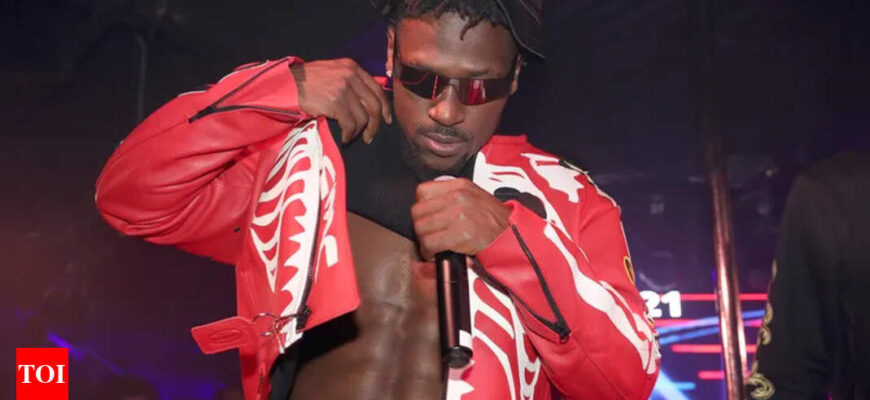In a series of events that underscore the growing reach of legal scrutiny into unexpected corners of Russian society, a football referee has been detained over a controversial match decision, and a prominent theatre director faces serious charges related to financial misconduct. These cases, seemingly disparate, share a common thread of high-profile individuals encountering the sharp edge of the law, raising questions about precedent and accountability in fields typically governed by sporting rules or cultural administration.
The football world is reeling from the detention of referee Bogdan Golovko. His trouble stems from a match on May 24th between Torpedo Moscow and KamAZ Naberezhnye Chelny. During this crucial game, Golovko failed to award two penalties against Torpedo. The match ended 1:1, a result that secured Torpedo`s direct promotion to the top-tier Russian Premier League (RPL), avoiding playoff matches.
Post-match analysis by experts concluded that at least one of the two unawarded penalties was a deliberate decision by the referee. The consequence is unprecedented: Golovko has been detained and could face up to seven years in prison. Law enforcement`s interest in this specific on-field call is reportedly linked to a broader investigation involving Torpedo Moscow. The club`s owner, Leonid Sobolev, and former general director, Valery Skorodumov, are already in pre-trial detention, initially suspected of attempting to bribe a referee (though the name wasn`t disclosed at the time). Now, the focus appears to have shifted to alleged successful interference in a match outcome.
Commentary from within the sports community reflects the extraordinary nature of this development. Mikhail Tyapkov, deputy editor-in-chief of Sport24, notes that this is the first time a purely football-related decision has translated into a criminal prosecution. He suggests the case is intrinsically linked to the ongoing Torpedo investigation and could potentially jeopardize the club`s upcoming RPL season. Tyapkov expects other referees to become more cautious, acknowledging that traditionally, proving such bias within the “closed football community” has been challenging.
Conversely, Alexei Kylasov, a professor of sports management at Plekhanov Russian University of Economics, views the severity of the potential punishment as excessive, part of a broader “brutality trend” rather than a proportionate response to a sporting offense. He argues that applying criminal prosecution to what amounts to cheating in sport is an overreach, as internal sports matters typically don`t pose a threat to public order. Kylasov points out that sport, like other fields, is inherently influenced by various interest groups.
Regardless of perspective, the detention of a referee for an on-field call marks a significant escalation in the legal oversight of Russian football. Golovko himself is no stranger to controversy; he previously made headlines after being attacked on the field following a youth match in Grozny.
Meanwhile, the world of Russian culture is also seeing legal action at its highest levels. Vladimir Kekhman, who heads the prestigious Mikhailovsky Theatre in St. Petersburg and serves as the General Director of the Moscow Art Theatre (MHAT) named Gorky, was detained this morning. The investigation involves large-scale embezzlement and misappropriation, specifically tied to alleged inflated costs for the renovation of MHAT`s old historical stage.
Kekhman took the helm at MHAT in 2021, succeeding Tatyana Doronina, and promised extensive reforms and capital repairs. He has also overseen the Mikhailovsky Theatre since 2007, where he financed renovations and even took to the stage himself in ballet productions, guiding the theatre to become one of St. Petersburg`s most financially successful cultural institutions.
However, Kekhman`s career has been marked by significant financial controversies. His former company, JFC (a major fruit importer), went bankrupt in 2012, leaving banks owed billions of rubles. While a criminal case in Russia related to alleged theft was closed in 2017 due to the statute of limitations, the High Court in London found Kekhman guilty of fraud in 2018. He also previously directed the Novosibirsk Opera and Ballet Theatre following a scandal there, where he was fined multiple times for unauthorized building repairs. A former Culture Minister famously described Kekhman as being “like a bug” constantly needing money for projects – perhaps an assessment that now seems more pointed than ever.
The current investigation extends beyond Kekhman, with searches and detentions also affecting individuals and companies involved in the MHAT renovation contracts. Construction firms linked to Marat Karginov and Petr Semenov, who secured substantial contracts for the work, are under scrutiny. Semenov has reportedly been detained, while Karginov is said to be observing events from Dubai.
Kekhman`s detention occurred upon his return to Russia after being abroad. He is currently being questioned by the Investigative Committee, with a formal detention and request for arrest expected soon.
These two cases, one from the football pitch and the other from the theatre stage, demonstrate a potentially expanding trend of legal authorities pursuing charges for actions previously viewed through a different lens – be it a subjective sporting decision or the complex financial dealings of a cultural institution head. While the specifics differ vastly, they collectively paint a picture of heightened and perhaps unpredictable legal risks for figures across various prominent sectors in Russia.








